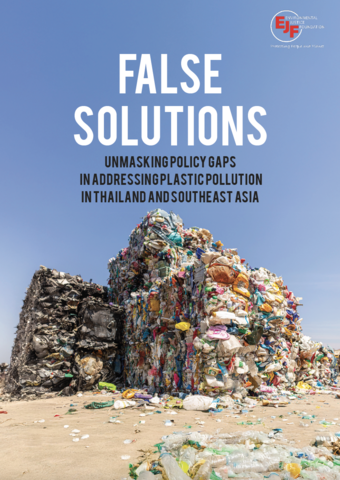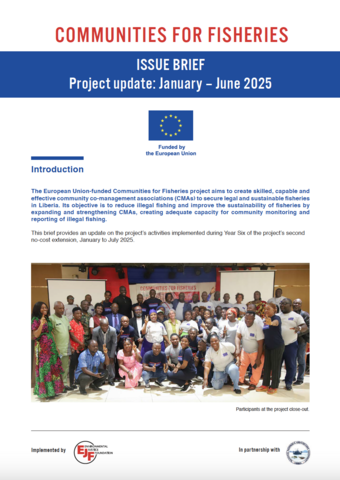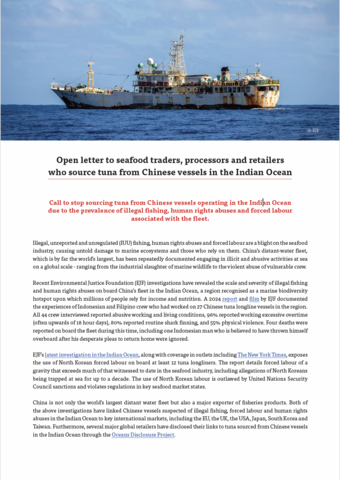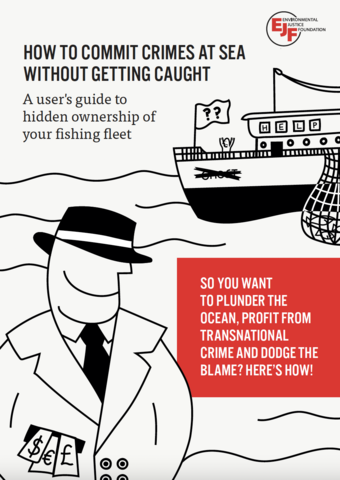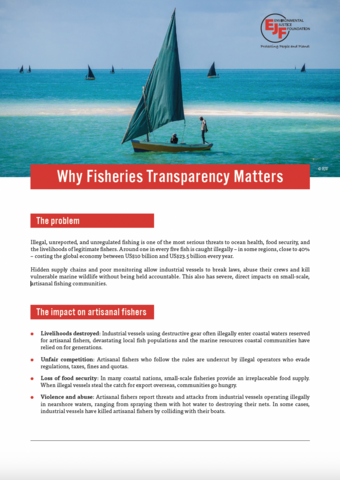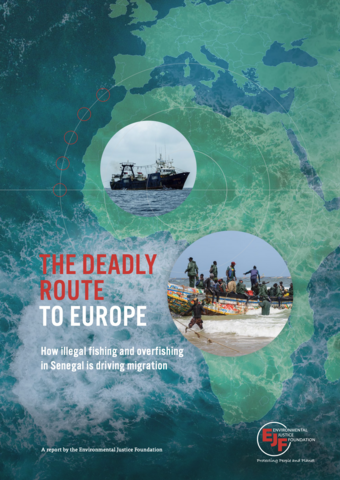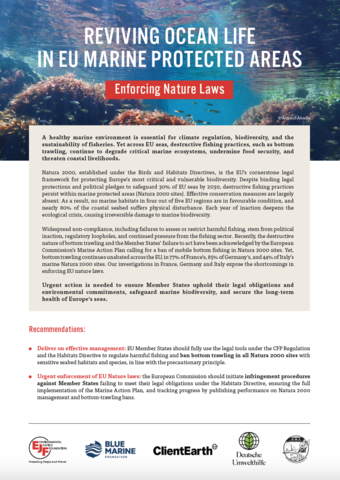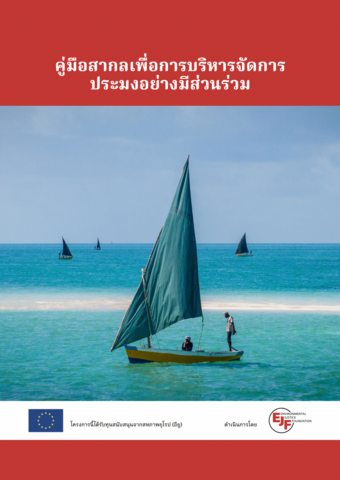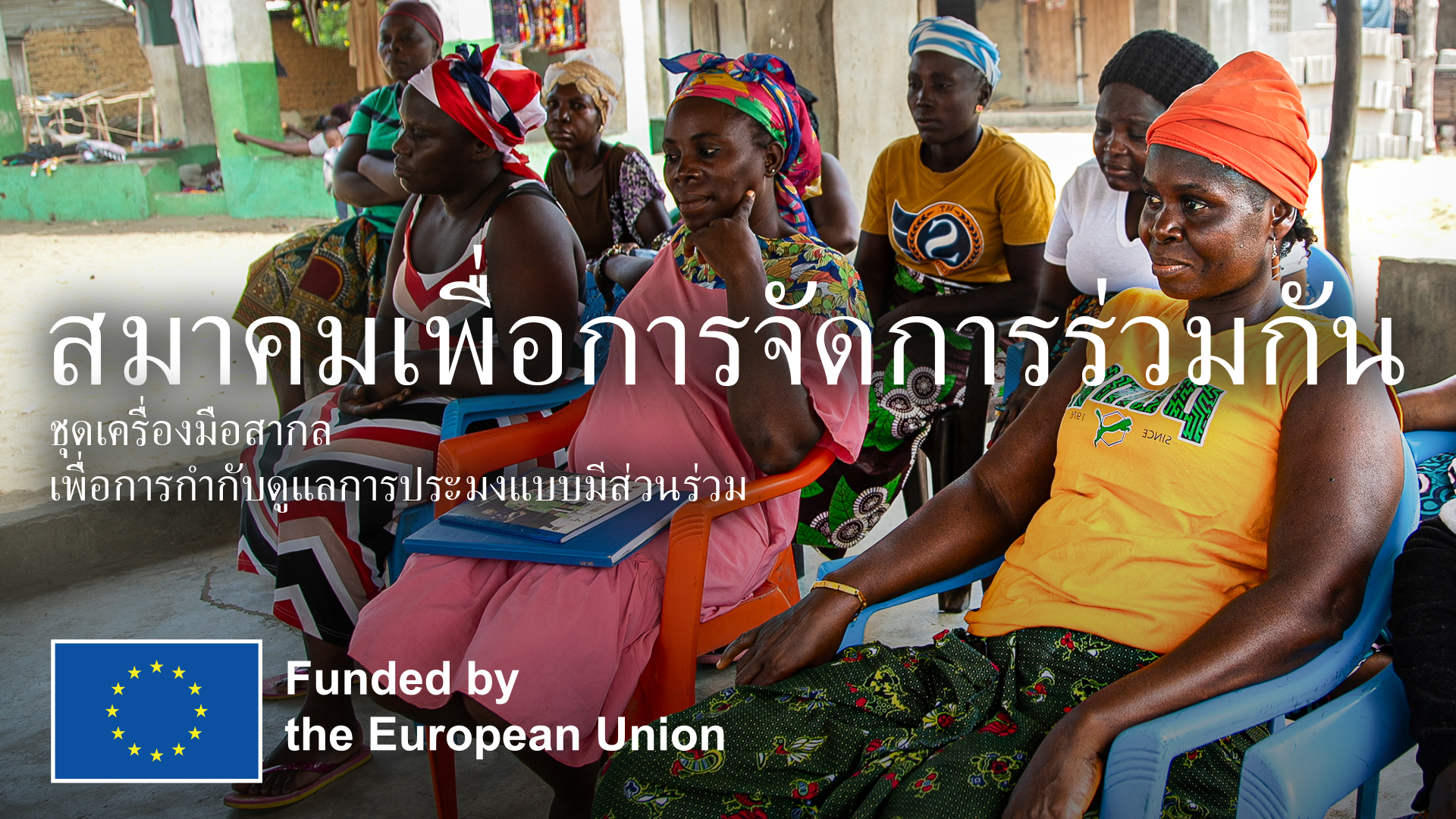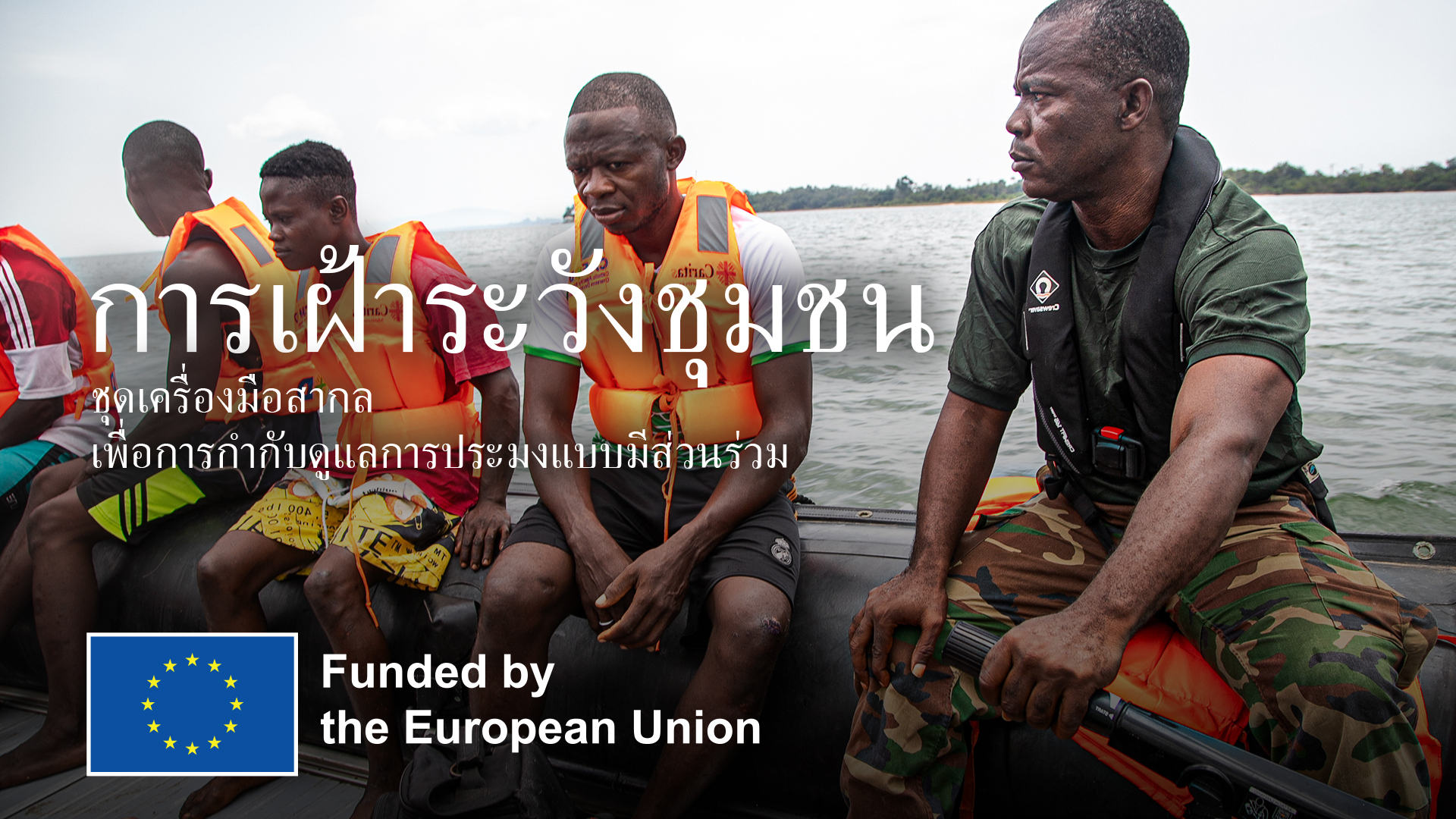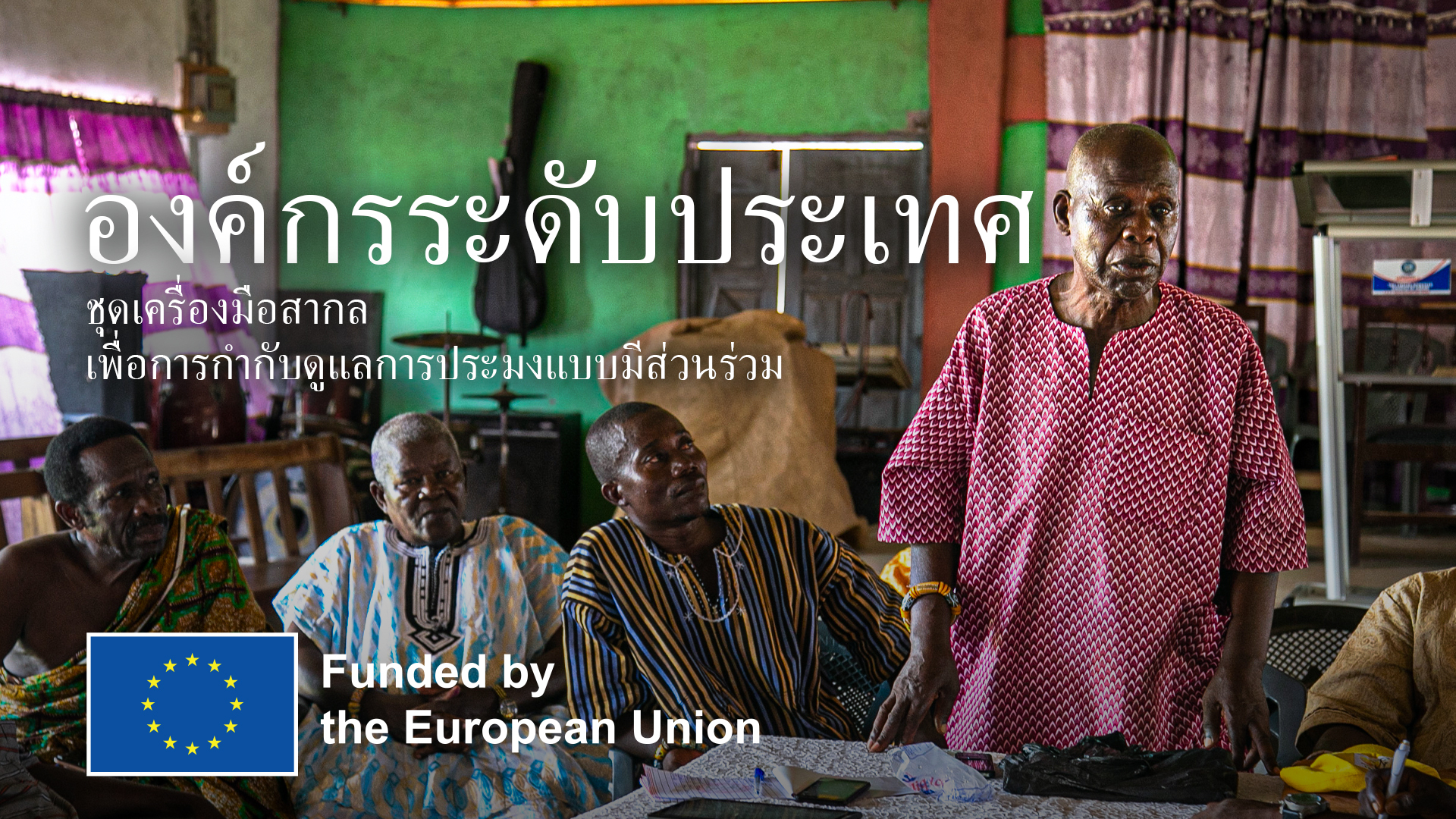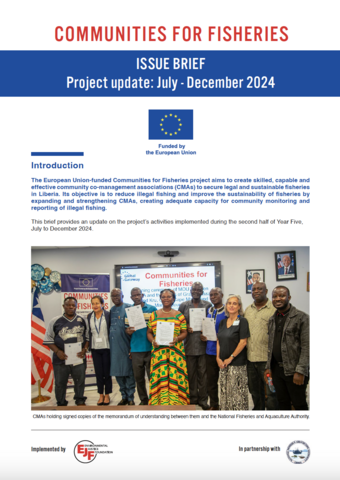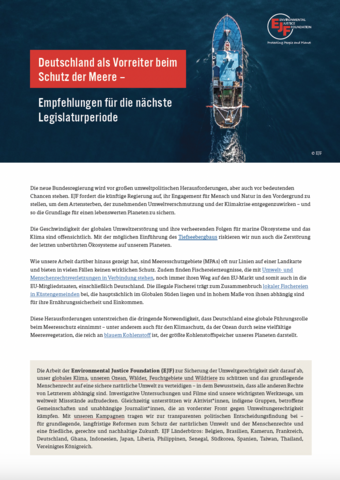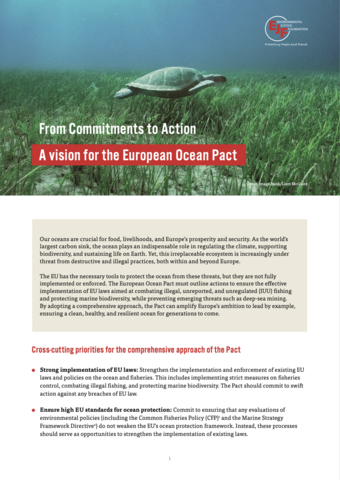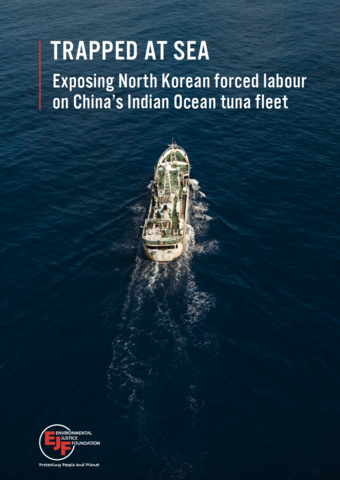False solutions: unmasking policy gaps in addressing plastic pollution in Thailand and Southeast Asia: Plastic pollution has reached a critical level in Thailand and Southeast Asia. This report identifies how and why efforts to tackle it have proved unsuccessful, particularly focusing on the lack of measures to address the high rate of plastic production, the root cause of the contemporary plastics crisis.
Communities for Fisheries issue brief: January to June 2025 project update: The European Union-funded Communities for Fisheries project aims to create skilled, capable and effective community co-management associations (CMAs) to secure legal and sustainable fisheries in Liberia. This brief summarises the project’s activities during the first half of Year Six, January to June 2025.
The Deadly Route to Europe: How illegal fishing and overfishing in Senegal is driving migration: This report documents the impacts of overfishing and illegal, unreported and unregulated (IUU) fishing in Senegal. It examines how the resulting declines in fish populations are driving increased forced migration to Europe across Earth's most deadly migration route, leading to over 3000 deaths in 2023 alone.
Reviving ocean life in EU marine protected areas: Across EU seas, destructive fishing practices, such as bottom trawling, continue to degrade critical marine ecosystems, undermine food security, and threaten coastal livelihoods. Urgent action is needed to ensure Member States uphold their legal obligations and environmental commitments, safeguard marine biodiversity, and secure the long-term health of Europe’s seas.
เครื่องมือที่ใช้ในระดับนานาชาติ เพื่อสร้างการบริหารจัดการแบบมีส่วนร่วม: คู่มือฉบับนี้จัดทำขึ้นโดยมูลนิธิความยุติธรรมเชิงสิ่งแวดล้อม (Environmental Justice Foundation: EJF) โดยได้รับทุนสนับสนุนจาก สหภาพยุโรป (EU) ทำหน้าที่ให้แนวทางความรู้เฉพาะด้านสำหรับผู้ปฏิบัติงานที่ทำงานร่วมกับชุมชนประมงรายย่อย โดยมีเป้าหมายเพื่อเสริมสร้างศักยภาพของคนกลุ่มนี้ในการต่อสู้กับการทำประมง ผิดกฎหมาย ขาดการรายงาน และไร้การควบคุม (IUU) รวมถึงทำงานเพื่อสร้างการประมงที่ยั่งยืน ถูกกฎหมาย และมีจริยธรรม
Communities for Fisheries issue brief: July to December 2024 project update: The European Union-funded Communities for Fisheries project aims to create skilled, capable and effective community co-management associations (CMAs) to secure legal and sustainable fisheries in Liberia. This brief summarises the project’s activities during the second half of Year Five, July to December 2024.
Deutschland als Vorreiter beim Schutz der Meere – Empfehlungen für die nächste Legislaturperiode: Um unsere Zukunft zu sichern, müssen wir dafür sorgen, dass sich unsere Meere erholen und weiter gedeihen können. Dieses Kurzbriefing zeigt auf, wie die neue Bundesregierung in wichtigen Bereichen handeln kann, um unsere Meere und die Menschen, die von ihnen abhängig sind, zu schützen.
From Commitments to Action: A vision for the European Ocean Pact: The ocean is increasingly under threat from destructive and illegal practices, both within and beyond Europe. The EU has the necessary tools to protect the ocean from these threats, but they are not fully implemented or enforced. The European Ocean Pact must outline actions to ensure the effective implementation of EU laws aimed at combating illegal, unreported, and unregulated (IUU) fishing and protecting marine biodiversity, while preventing emerging threats such as deep-sea mining.
Trapped at sea: exposing North Korean forced labour on China’s Indian Ocean tuna fleet: This briefing finds that a fleet of Chinese tuna fishing vessels operating in the Indian Ocean reportedly used North Koreans as crew between 2019 and 2024, likely violating UN sanctions. Many were apparently subjected to abuses, including being trapped at sea for up to a decade, on vessels involved in illegal fishing and the killing of dolphins.
